Unlike the vast number of entertainment options available to the 21st-century consumer, those in the early 18th century looked to paper peep-shows for leisure entertainment. A peep-show can also be thought of as a set for a miniature theatre; a series of backdrops. German artist and publisher Martin Engelbrecht (1684-1756) is credited with the creation and popularization of such peep-shows, with his Winter Scene of 1740, remaining, to this day, as a striking example of his ability to seduce the viewer with whimsy and to interject a sense of magic in the day-to-day.
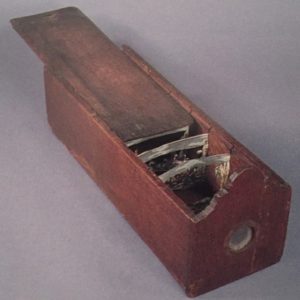
Peepshow viewing box, Eighteenth Century, Wood
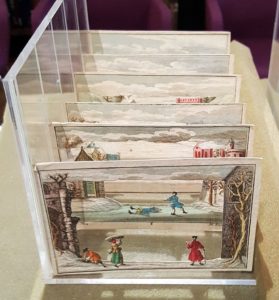
Winter Scene plates lined up in viewing order in modern display box.
Consisting of six thick paper cards, each measuring approximately 4 inches by 6 inches, Engelbrecht’s dimensional scene comes to life when properly aligned, secured with the aid of leather or wooden “peep-boxes”. Vertical positioning of the cards within the box, with the lid slid shut to allow proper light to penetrate, provides the viewer with a single opening through which to “peep” in and survey the scene.
The Library utilizes a modern plexiglass stands to view the scenes.
The cards depict a winter scene where the viewer can experience artful depictions of everyday activities ranging from the gathering of wood, to ice skating, to a charming sleigh ride. The realities of such an 18th century German winter, however, would have been anything but pleasant.
In addition to this recent acquisition of Winter Scene The Cooper Hewitt Library owns another Engelbrecht peep-show, Garden scene with dancers.
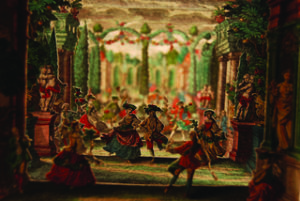
Plates of Garden Scene with Dancers peep-show lined up like a miniature theater.
Cooper Hewitt’s Drawings, Prints, and Graphic Design Department also holds an Engelbrecht peep-show depicting a theatrical setting of The Carnival of Venice.
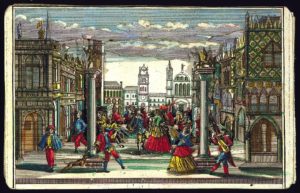
Peep-show, The Carnival of Venice, 1730–50
Olivia Grochmal is a graduate student in the History of Design and Curatorial Studies program offered jointly by the Parsons School of Design and the Cooper Hewitt Smithsonian Design Museum. A student CHM Library worker and a fellow in the Cooper Hewitt Marketing Department, Olivia’s interests focus on Colonial silver and the art of the French Riviera.
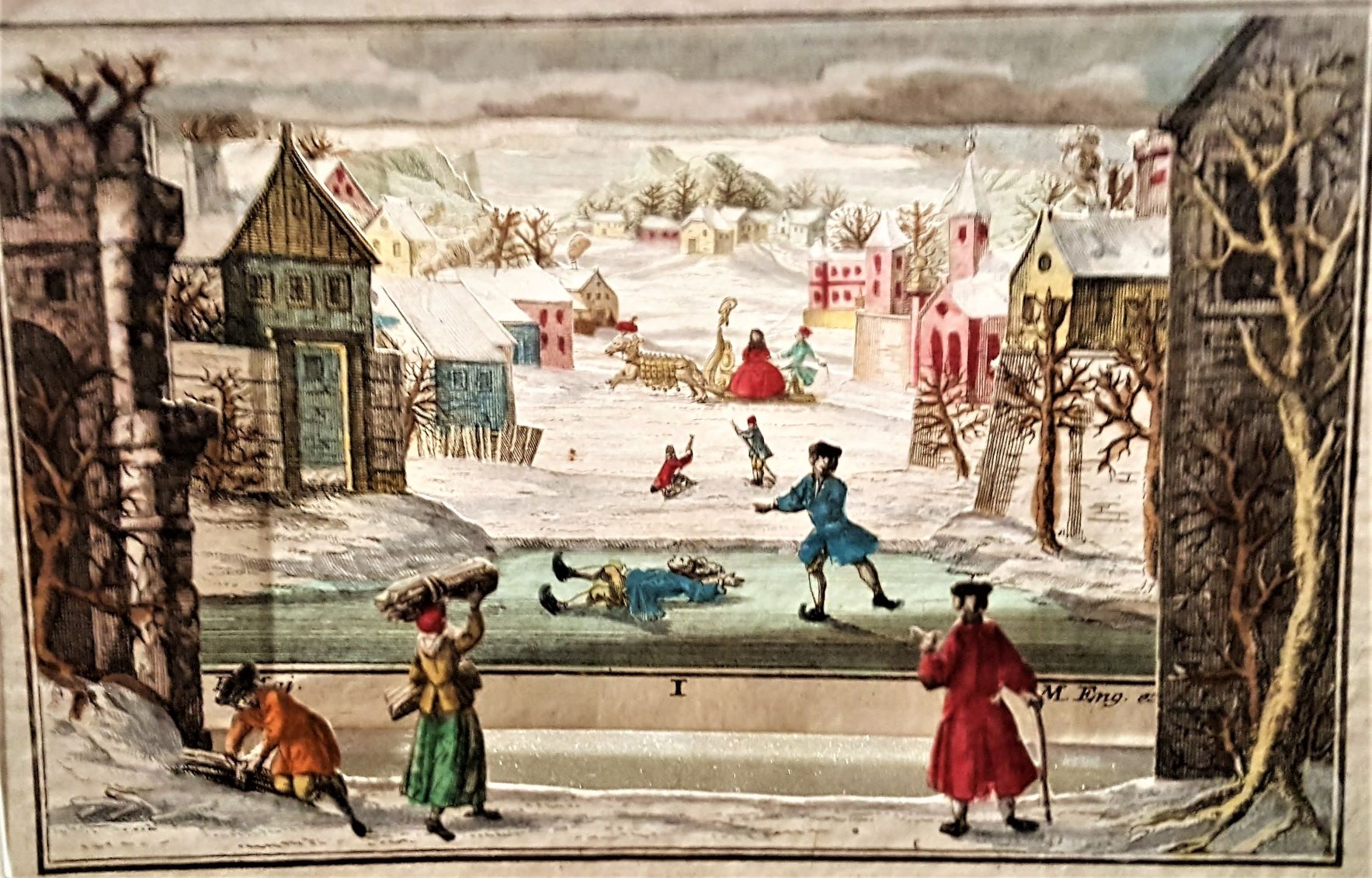
One thought on “Who Wouldn’t Want to Take a Peep?”
Maria La Place on February 14, 2019 at 1:54 pm
This was fascinating. Can you enlarge the images of the other two peep shows? They are hardly legible at the size in the post.